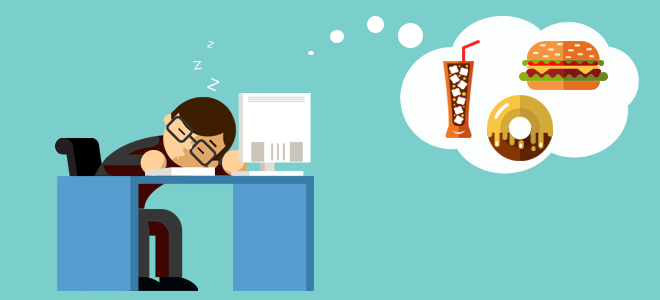
Ghrelin and leptin are not characters from HBO’s Game of Thrones. In fact, they are hormones that regulate our feeling of hunger. First, it starts off as a little rumble – then you really start to dream of a big meal. However, if you have sleep apnea, these hormones may be completely out of whack and that rumble may come more of a lion’s roar. More and more researchers are, ahem, weighing in with the theory that lack of sleep may cause weight gain and a bigger appetite for junk food. If you have sleep apnea, this added weight could make your sleep condition worse.
In one study, published in the Journal of Clinical Nutrition, researchers found that people who lacked a sufficient amount of sleep burned the same exact number of calories as full rested people, but they added an additional 300 calories a day. Considering the fact that it takes just 3,500 calories to pack on an unwanted pound, you can imagine how many extra pounds you can put on. There are a number of reasons why sleep deprivation may cause weight gain.
One theory is that sleep deprivation slows down our metabolism. When we haven’t gotten enough sleep, our body slows down our metabolic processes to conserve energy. When this happens, a hormone called cortisol is released that sparks your appetite. This is the same hormone that is released when our body goes through emotional or physical stress. It’s a primitive hormone that kicks our body into action during a flight or fight situation. When this happens, our body craves food to increase energy.
This could explain those midnight snacks. Yet, if you aren’t burning off those calories and remain sedentary, you may soon start to notice an extra spare tire around your waste line. Another hormone that gets released is ghrelin, which also signals our body to desire food. On top of that, sleep deprivation has been known to pull back on the hormone leptin, which tells our stomach that we’re full. For instance, you may want to put that slice of cake back in the fridge, but you may also eat the whole thing.
Combine all of these factors and more hours not sleeping and you have a perfect storm for obesity. And that’s too bad, because the sooner and longer you enter a REM state, the more calories you can burn off. Researchers note that a healthy REM cycle is like a natural calorie burner. If you have sleep apnea and have trouble staying in a solid REM state, your calories may just turn to fat cells, which can keep building up night after night that you struggle for sleep.
In the end, if you have sleep apnea, this added weight can be a curse on top of a curse. People who are overweight already have a greater likelihood for being obese, so this vicious cycle could lead down a dark path. Indeed, it is important to get between seven and eight hours of sleep for a healthy metabolism, but if you have obstructive sleep apnea, you may need the life saving help of continuous positive airway pressure, or CPAP, to help you get to sleep and stay asleep for longer. You could also combine this with exercise for a leaner, healthier life. After all, the summer is just around the corner – is your body beach ready?











